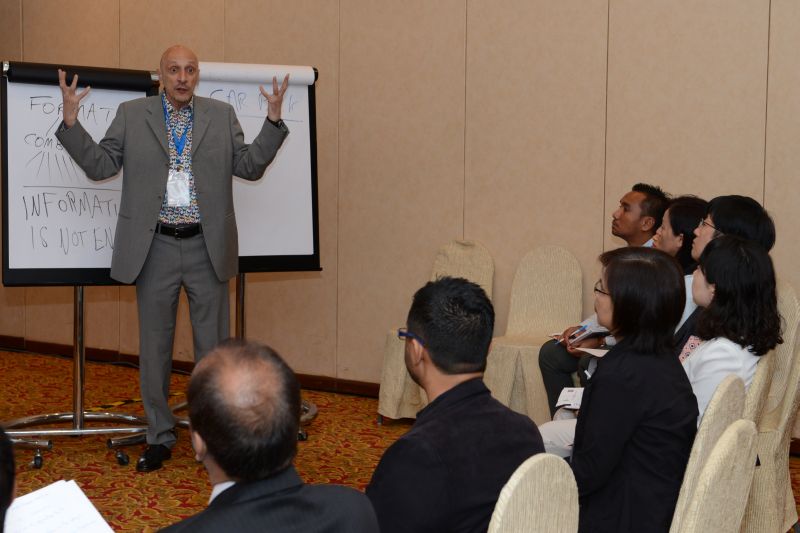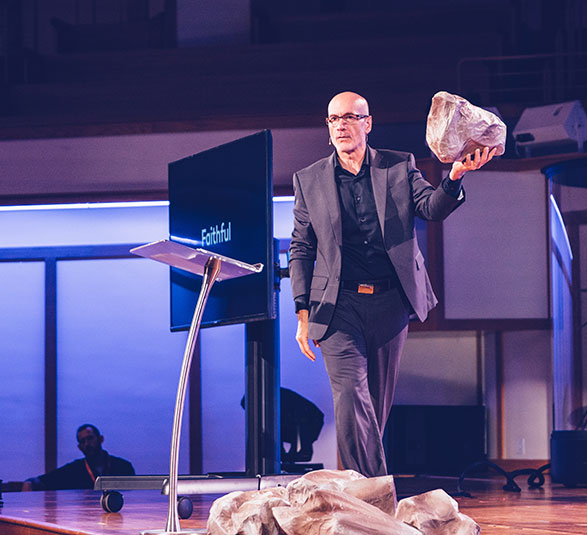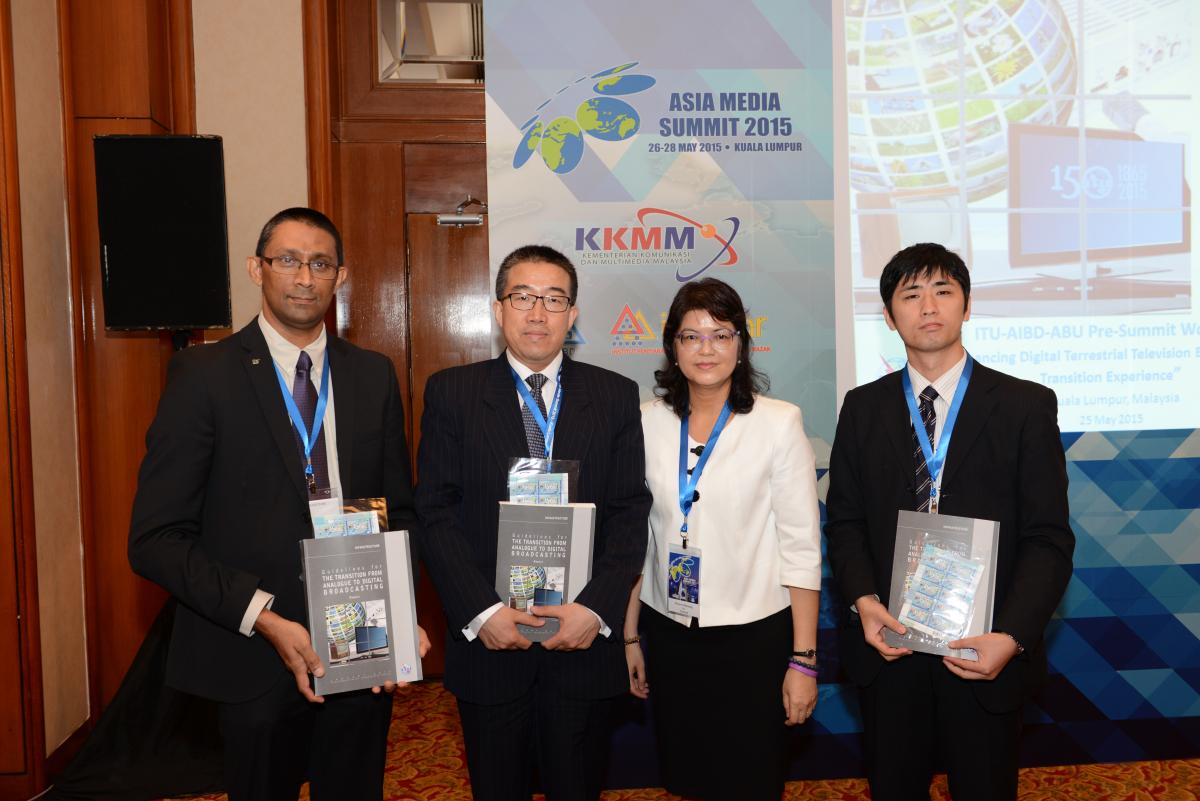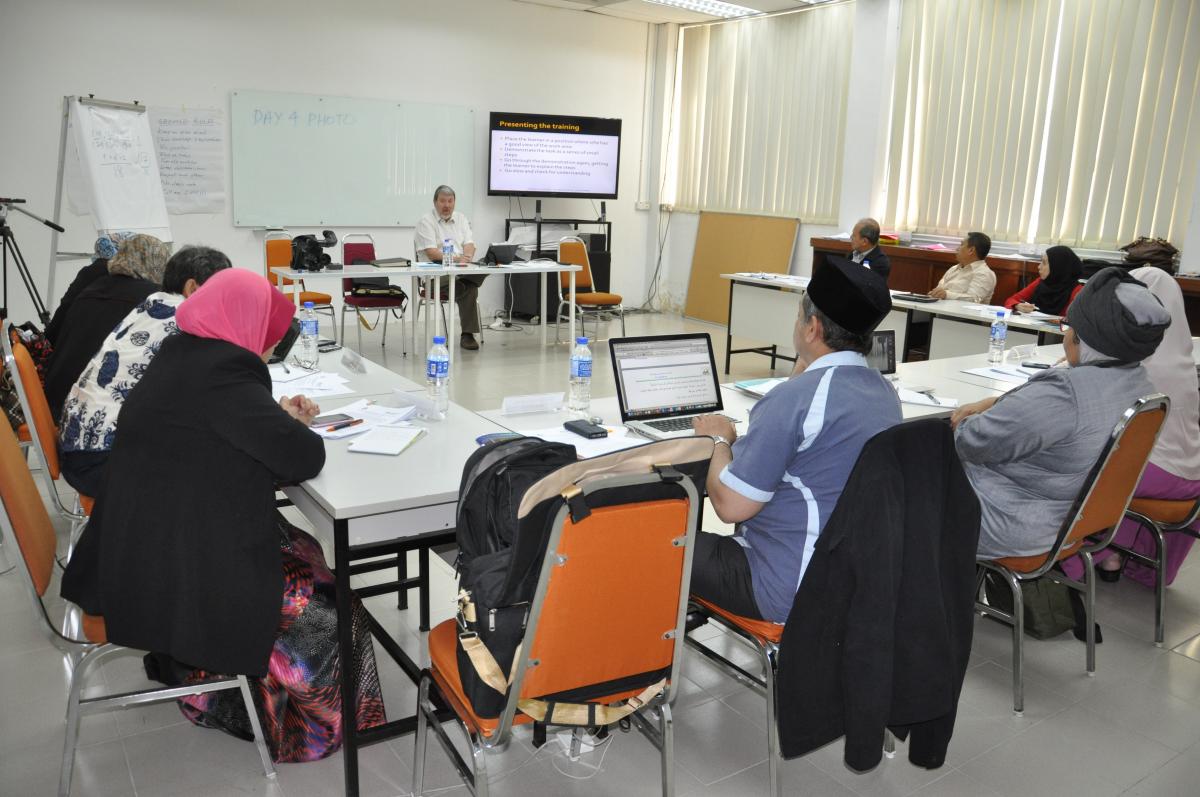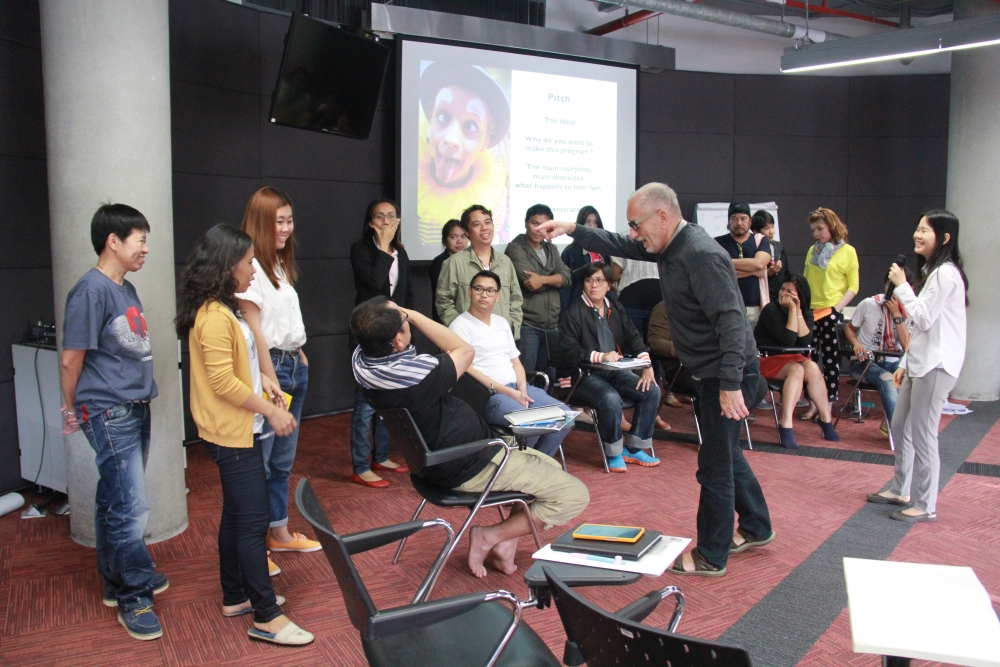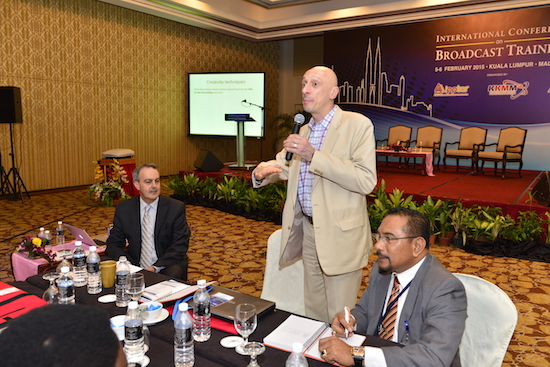


Cross Media Formats and Format Innovation Workshop
AIBD/RTM In-Country Workshop on DVB-T2 Transmission
The In-Country workshop on Digital Video Broadcasting - Terrestrial (DVB-T2) was organised by AIBD with support from Radio Television Malaysia (RTM) was held in Kuala Lumpur, Malaysia from 11 to 15 May 2015. The workshop was designed specifically for broadcast engineers/technicians associated with planning, implementation, operation and maintenance of digital television broadcasting. The workshop also covered various techniques and parameters of DVB-T2.
Succesful In-Country Workshop on ‘Developing Cross Media Story-based Strategies for Journalism or Marketing’
Asia-Pacific Institute for Broadcasting Development (AIBD) with the support of Goethe-Institut (Malaysia) and the Nottingham University (Malaysia campus) organised an In-Country workshop on 'Developing Cross Media Story-based Strategies for Journalism or Marketing' on 29 May 2015 in Kuala Lumpur, MalaysiaCCCoo
Delivering Great Social Media Experiences
Laura-May Coope, Co-founder and Manager of Social Life, BBC, United Kingdom, urged radio broadcasters to derive maximum benefits from social media by inviting their listeners and fans in making them feel special and valued, creating emotional connections, and offering them rewards.
Digital Transition in Asia-Pacific
Transition to DTTB services is a complex process yet necessary for broadcasters to remain in business in the longer term. Broadcasters who delay digital switchover transition will lead to increased costs and loss of revenues.
Growing Importance of Mobile Journalism
Smart phones are increasingly becoming an important tool in telling news stories and producing short pieces and documentaries for various media platforms, including social networking sites
Regional Workshop on Training of Trainers
Newsreaders who take too many breaths, or mispronounce names and places. Location radio reports lacking a sense of place. Poor balance and feedback in a PA system. Insensitive questions to natural disaster victims. And figuring out what to trust—and what not to—when using social media as a news source.
AIBD/NRK/Thai PBS workshop on Children TV Programmes
Next year Thai PBS is coming up with a new channel for children and family programmes. The organisation has taken up many new projects to increase the production of children’s programmes for the new channel. Thus an AIBD/NRK/ Thai PBS workshop on ‘Children TV Programmes was organised from 23 to 27 February in Bangkok to develop six of these projects.
Story telling Techniques
Broadcasters from 19 countries in Asia-Pacific, Europe, and Africa generated
IPPTAR/KKMM/AIBD 3rd International Conference on Broadcast Training
The 3rd International Conference on Broadcast Training, hosted by the Ministry of Communications and Multimedia, Malaysia (KKMM) and organised by the Tun Abdul Razak Broadcasting and Information Institute (IPPTAR) and AIBD will be held on 5-6 February 2015 in Kuala Lumpur, Malaysia.


